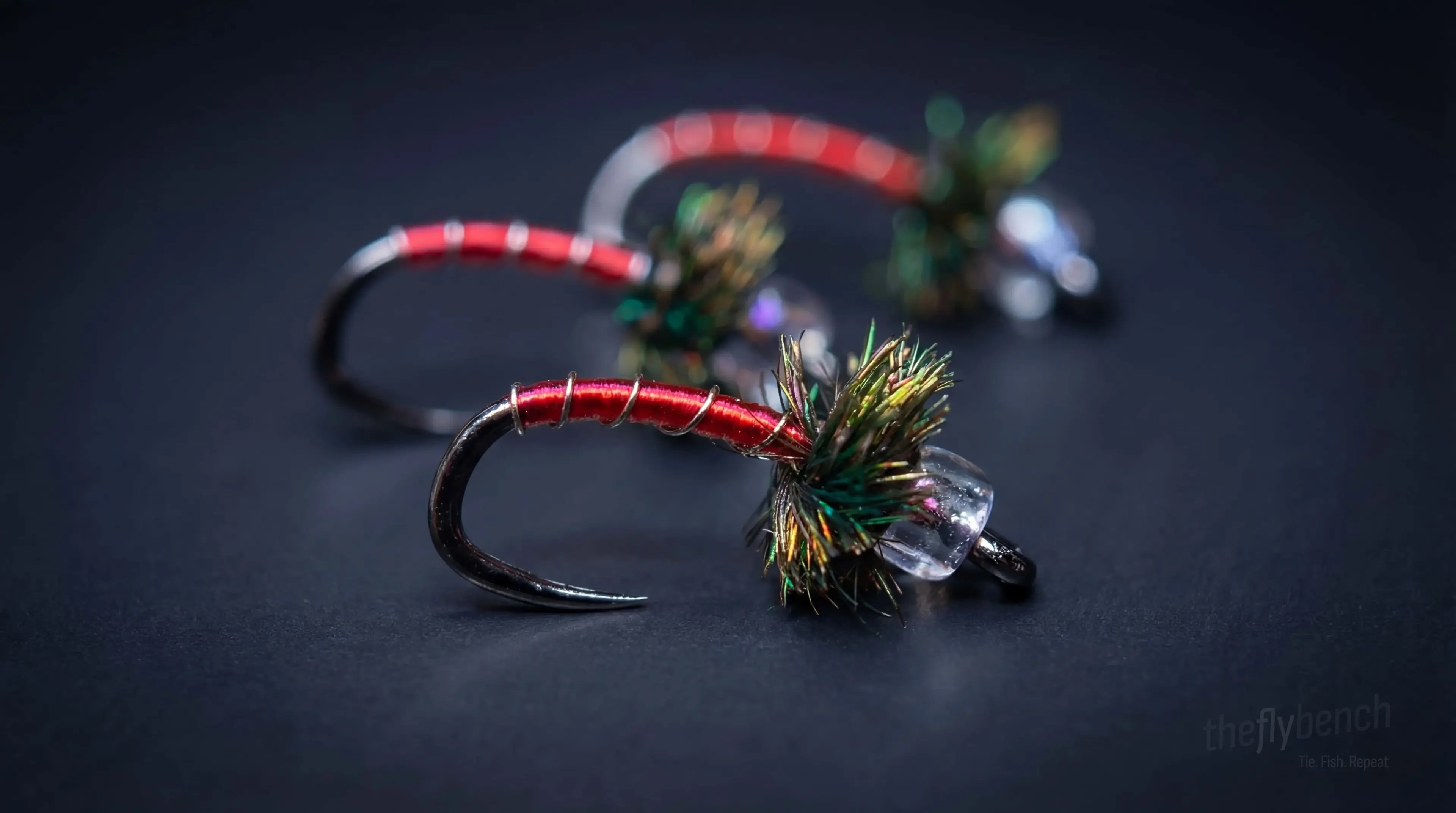Midge / EmergersMercury Blood Midge
The Mercury Blood Midge utilizes a glass bead to imitate the gas bubble midges use to ascend to the surface during a hatch. Its bright red body replicates the hemoglobin visible in many midge larvae and pupae, which is a major attractant for trout.
Spring, Fall, Winter
Beginner
Trout

Overview
Adds a clear glass bead to the traditional Blood Midge to enhance visibility and add subtle weight. Use red thread for the body, fine silver or red wire for ribbing, and a sparse peacock herl or dubbing collar. The clear bead imitates an air bubble and gives this fly a slight edge in both flash and sink rate.
Pattern Characteristics
Materials
Hook: Firehole Sticks 316, size #18–#22
Bead: Mercury Midge Glass Bead, small
Thread: Red Veevus 16/0
Body: Red thread
Ribbing: Fine copper wire
Fishing Tips
Season
Most effective in the cooler months when midges make up a larger portion of a trout's diet.
Presentation
Generally fished subsurface on a dead drift, but can also be effective when fished in the surface film during a midge hatch.
When to Use
Use during a midge hatch or when trout are being selective.
Water Type
Suitable for both stillwater and moving water.
Rigging Suggestions
Can be fished on a standard tapered leader or as part of a multi-fly setup.
Visibility & Floatation
This pattern is designed to sink and imitate midge larvae and pupae. The glass bead adds visibility and helps the fly descend to the right depth.





